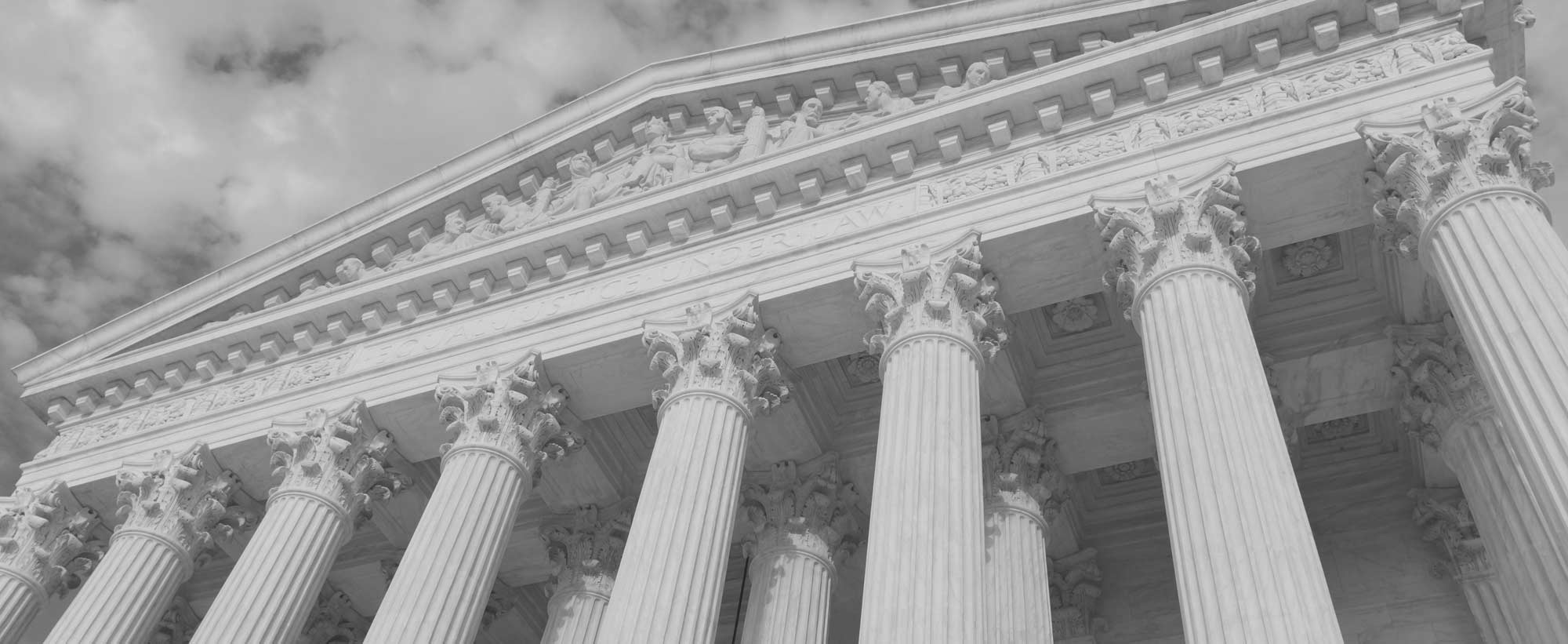Working with a bankruptcy attorney is the first step to making it through your tough financial times. But just like in any relationship, you’ll want to have an understanding of the person you are working with. How will you know your bankruptcy attorney is the right one to handle your specific circumstances?
Ask Your Bankruptcy Attorney
Bankruptcy is a difficult process and you’ll want to work with an attorney you consider the utmost expert. Here are some questions you can ask your potential lawyer to ensure that he or she is the one to handle your case.
Non-exempt assets? Each state has a list of assets that are deemed protected or “exempt” from creditor attachment or seizure. A qualified bankruptcy lawyer will and should review your assets to determine which items are and are not exempt in your case. Non-exempt assets can be seized and sold by a Chapter 7 trustee and can also drive the payment plan higher in a Chapter 13 bankruptcy. Your lawyer should advise you on any potential strategies for handling all non-exempt assets. Options include making an offer to the Chapter 7 trustee or liquidating the non-exempt asset. Liquidation will need to be performed under legally permissible conditions prior to filing.
Preferential payment issues? A preferential payment is a payment made to one creditor at the expense of or in absence of a payment or payments to other creditors.
Do I pass the means test to qualify to file for Chapter 7?
A knowledgeable attorney will and should review your income and your specific circumstances to determine if you qualify to file for Chapter 7 bankruptcy.
If Chapter 13 is the lawyer’s recommendation, what is the reason and what is the estimated monthly payment plan?
Here are five reasons for filing a chapter 13 instead of chapter 7:
- saving your home from foreclosure,
- saving your car from repossession,
- a prior Chapter 7 bankruptcy,
- failing to qualify for Chapter 7 due to high income, and
- non-exempt assets.
If Chapter 13 is recommended how many months will it last?
The length of a Chapter 13 bankruptcy is dependent upon passing the Means Test. You should not be locked into a 60-month plan if it is not deemed necessary.
Chapter 13 and Chapter 7 Bankruptcy
Chapter 13
Chapter 13 bankruptcy is determined by your property and designed to allow you to keep all of your property. The amount of nonexempt property affects how much unsecured creditors will receive as part of your bankruptcy. To avoid foreclosure or repossession, you still need to keep up with the payments you make for you secured debt, such as mortgages or car loans.
Chapter 7
When you file a Chapter 7 bankruptcy, almost all of your assets and property are liquidated and thus become property of the bankruptcy estate that is sold to allow you to repay your debts. Some exceptions apply and your bankruptcy attorney should be able to advise you further.
During your Chapter 7 bankruptcy, a bankruptcy trustee is appointed and given the authority to sell your assets so that you are able to pay your creditors. Just because your assets are being sold, that does not mean that all of your property needs to be sold.
Differences in Chapter 7 and 13 Bankruptc
In Chapter 13 bankruptcy, a trustee will not sell your nonexempt assets and distribute the proceeds to your creditors, as is the case in Chapter 7 bankruptcy. Rather, you will need to put together a repayment plan that shows your creditors how you plan to pay back some or all of your creditors. You get to keep your property in exchange for paying back a certain amount of the debt you owe. The more nonexempt assets you have, the more you will need to pay to unsecured creditors.
When you file for Chapter 7 bankruptcy, a trustee takes the nonexempt property, sells it, and uses any proceeds to pay your general unsecured creditors. Because you keep your property with Chapter 13, it’s unfair to your unsecured creditors if they do not get paid as much as they would have had you filed for Chapter 7.
Because of this, if you file Chapter 13 and create a repayment plan, you will still need to pay the general unsecured creditors a dividend at least equal to the value of your nonexempt assets. If you have a large amount of nonexempt property, you may have to repay the unsecured debts in full.
Secured Debt
A creditor is able to secure a debt by foreclosing on or repossessing an asset if you default on that loan. This is how they make sure they earn back at least a portion of the money they loaned you. Debts are treated differently in Chapter 13 than general unsecured debts (like credit cards or medical bills) because Chapter 13 bankruptcy does not wipe out the lender’s lien on the property that is securing the loan.
To keep your property, you will need to catch up on any payments you have missed on the secured debts. Chapter 13 can still be helpful because it allows someone to set up a repayment plan to back-pay the secured debts they have been delinquent on.
Keep Up Your Regular Secured Debt Payments
You will need to continue making payments on those loans to protect yourself from foreclosure or repossession. Chapter 13 does not eliminate a secured creditor’s lien. Most courts require you make ongoing mortgage payments directly to your lender outside of bankruptcy. That is not always the case for secured personal property debts like car loans. While some courts will require you to pay the lender directly, others allow you to pay them through your bankruptcy repayment plan.
A lender will have no reason to foreclose on your home or repossess your property as long as you keep up with your regular secured debt payments. If you fall behind on your payments, a lender is able to ask the court for a relief of the automatic stay that is protecting your property from foreclosure or repossession.
Bankruptcy Exceptions Chapter 7
There are exemptions so that you are able to keep a certain amount of property through the bankruptcy so that you are not completely wiped out and have to start all over again. In a Chapter 7 bankruptcy, if an asset is declared exempt, the bankruptcy trustee is not allowed to sell it as part of the liquidation process to pay your creditors. The value of the asset and your specific exemptions determine how much you are able to keep, and because of these exemptions, most people that filed Chapter 7 are able to keep all or most of their property.
State and Federal System for Exemptions

Every state, and the federal system has a set of exemptions. Some states require you to use their own exemptions, while other states allow you to choose between their system and the federal system of exemptions. You will want to work with a bankruptcy attorney to learn which option your state provides. Because of these state-specific laws, where you live greatly determines the amount of property you will be able to protect if you file forChater 7 bankruptcy.
The federal system of exemptions (and most states) allow you to keep a certain amount of equity in your house as well as your personal property. For example, this means you can keep your car or the money you have in the bank. Some states offer an unlimited homestead exemption which allows you to keep your home even if you own it free and clear and could make a sizable amount of money from selling it. Typically, household goods and clothing are exempt unless they are unusually valuable.
Exemptions In Chapter 7 Bankruptcy
A Chapter 7 bankruptcy trustee evaluates how much value there is in your property to determine whether or not to take it as part of the bankruptcy. A creditor’s lien is not affected by the bankruptcy if you have loans that secure your property (such as car loans or mortgages). So a trustee will need to pay the creditor the loan amount from the sale. An example of this: your car is worth $15,000, you have a loan on it for $10,000. That means it is only worth $5,000 to the trustee.
In states with car exemptions of $5,000 or greater, then you will not need to worry about the trustee selling it to pay your creditors. But if the state only allows a $2,000 car exemption, then a trustee may be able to take your car and sell it, pay you the exemption you are entitled to, subtract the costs of sale and the trustee’s commission, and then distribute the rest among your creditors.
You are able to combine certain exemptions to save your property. The federal exemptions system and certain states systems employ a wildcard exemption that can be used to exempt any piece of property.
Trustee Abandons Property
A trustee can still decide not to take an asset, this is called “abandoning it.” This happens if the value of the asset is only slightly more than your exemption amount. Often times this happens because the costs and fees associated with selling the asset eat up the equity so much that there isn’t anything left for the creditors. So if a trustee abandons the property, you get to keep it.
Working with a Bankruptcy Attorney
Bankruptcy law can be hard to understand. Because of this, it’s highly advised that you work with a bankruptcy attorney that can walk you through the process and clarify any questions or concerns you might have. There can be a lot of questions during this extremely stressful time. Let us guide you through the process so you can achieve the best outcome possible.
5455 Wilshire Blvd STE12000
Los Angeles, CA 90036
Phone: (213) 699-3055



